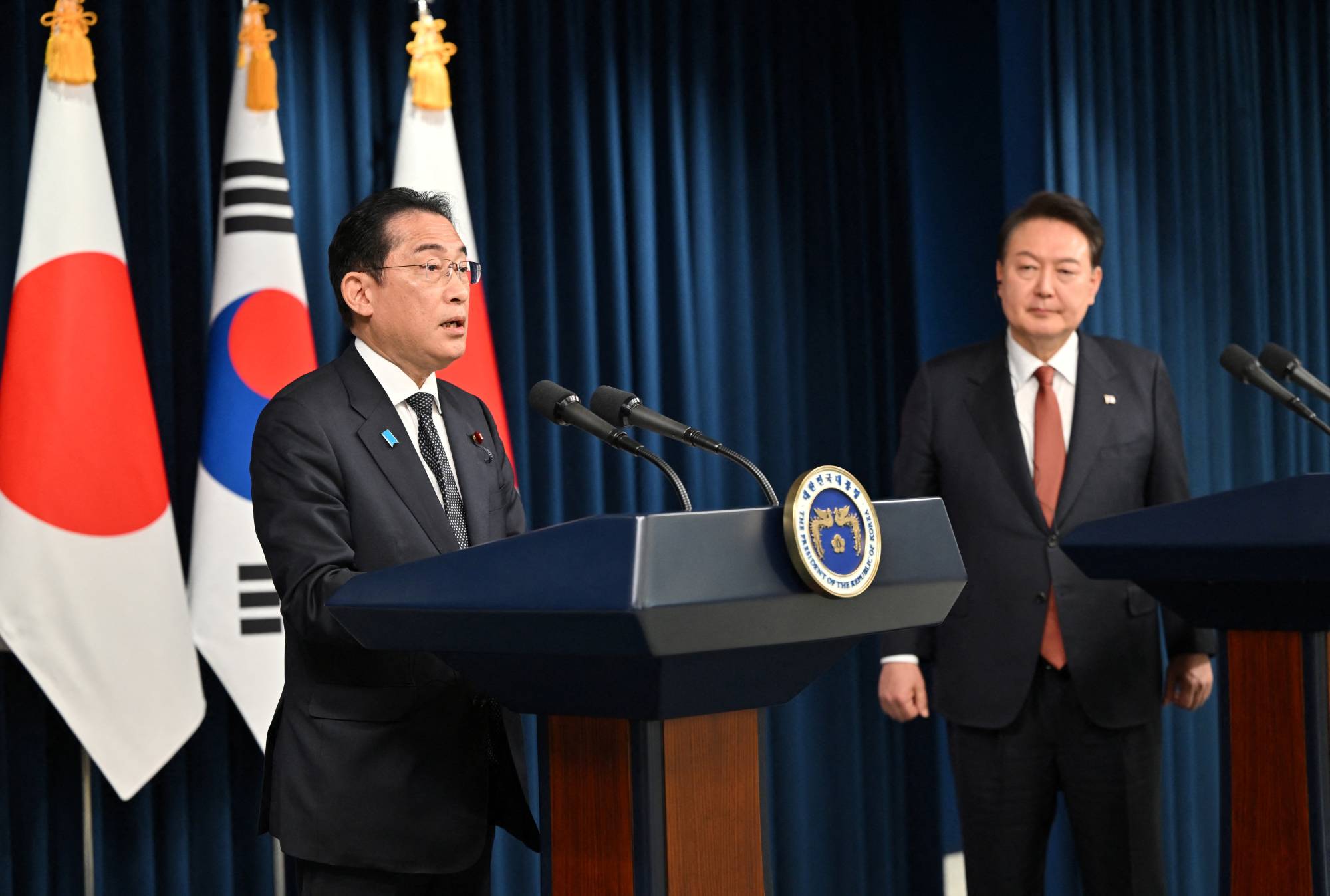Prime Minister Fumio Kishida’s visit to Seoul — the first such trip in over 12 years — and his cautious personal expression of contrition for Japan’s colonial rule of the Korean Peninsula are expected to give South Korean President Yoon Suk-yeol a boost and add more momentum to improving ties.
But while the two leaders will look to bask in the success of a fruitful summit, the relationship remains fragile — despite the breakneck speed of progress Kishida and Yoon have made, experts say.
Sunday's summit spotlighted the return of “shuttle diplomacy” — where leaders hold regular visits to each others’ countries — but also saw the Japanese leader reiterate his determination to stand by Japan’s past apologies for its 1910-45 colonial rule of the peninsula while delivering a rare articulation of his own feelings on the issue.

















With your current subscription plan you can comment on stories. However, before writing your first comment, please create a display name in the Profile section of your subscriber account page.